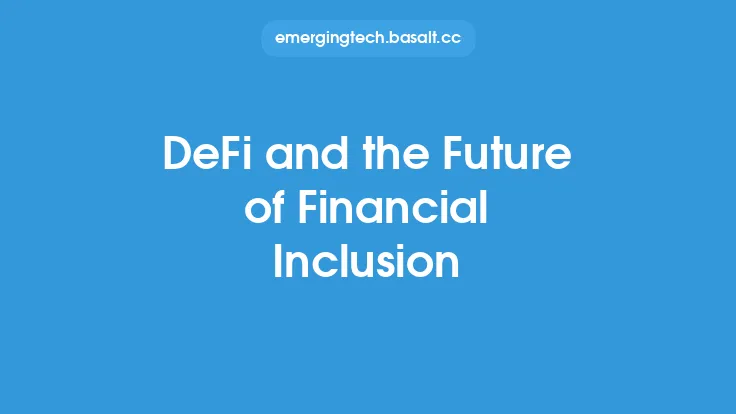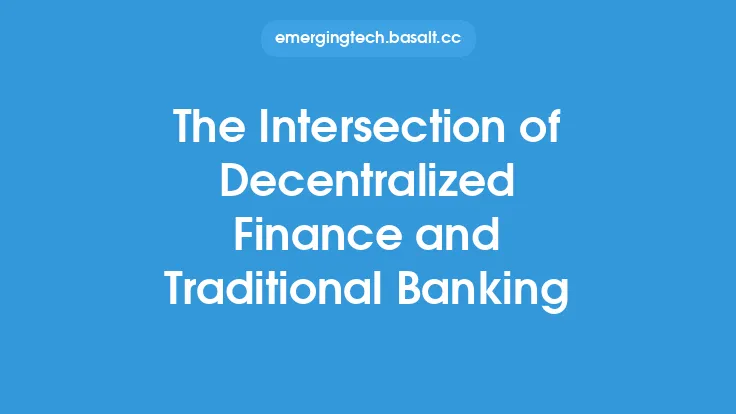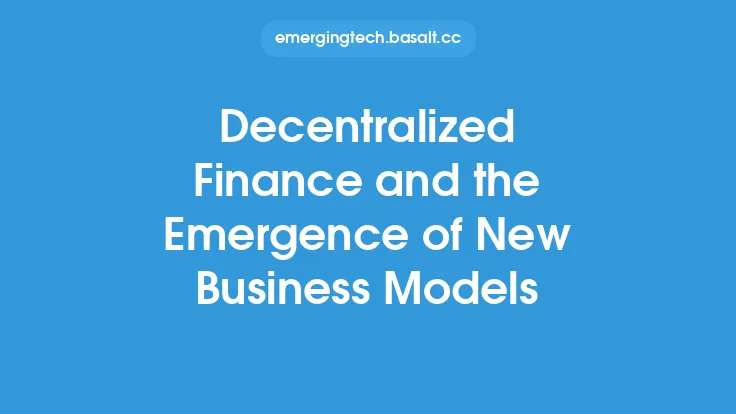The world of finance has undergone a significant transformation with the emergence of cryptocurrency. This digital or virtual currency has not only gained popularity but has also become a significant player in the global financial market. As a result, it's essential to understand the relationship between cryptocurrency and traditional markets. In this article, we'll delve into the details of this relationship, exploring how cryptocurrency interacts with traditional markets, and what this means for investors and the financial industry as a whole.
Introduction to Cryptocurrency and Traditional Markets
Cryptocurrency, such as Bitcoin and Ethereum, operates independently of traditional financial systems. It uses cryptography for secure financial transactions, and its decentralized nature allows it to function without the need for intermediaries like banks. On the other hand, traditional markets, including stock, bond, and commodity markets, have been the backbone of the global financial system for centuries. These markets are heavily regulated and rely on intermediaries to facilitate transactions. The coexistence of these two financial systems has led to a complex and intriguing relationship between them.
Correlation Between Cryptocurrency and Traditional Markets
One of the most critical aspects of the relationship between cryptocurrency and traditional markets is correlation. Correlation measures how closely the prices of two assets move together. In the case of cryptocurrency and traditional markets, the correlation is relatively low. This means that the price movements of cryptocurrencies like Bitcoin are not closely tied to the price movements of traditional assets like stocks or bonds. However, there are instances where the correlation between cryptocurrency and traditional markets increases, such as during times of economic uncertainty or when traditional markets experience significant volatility. Understanding the correlation between these two markets is crucial for investors looking to diversify their portfolios and manage risk.
Impact of Traditional Markets on Cryptocurrency
Traditional markets can have a significant impact on cryptocurrency prices. For example, during times of economic downturn, investors may turn to cryptocurrency as a safe-haven asset, driving up its price. Conversely, when traditional markets are performing well, investors may be less likely to invest in cryptocurrency, causing its price to drop. Additionally, traditional market trends, such as changes in interest rates or inflation, can also influence cryptocurrency prices. For instance, a rise in interest rates can make borrowing more expensive, reducing the attractiveness of cryptocurrency investments. Similarly, high inflation can lead to a decrease in the value of traditional currencies, making cryptocurrency a more appealing option.
Impact of Cryptocurrency on Traditional Markets
Cryptocurrency can also have an impact on traditional markets. The growing popularity of cryptocurrency has led to an increase in investment in the technology and infrastructure that supports it. This has created new opportunities for companies operating in traditional markets, such as those involved in the development of blockchain technology or the provision of cryptocurrency-related services. Furthermore, the rise of cryptocurrency has also led to an increase in the use of digital payment systems, which can disrupt traditional payment systems and create new opportunities for companies operating in this space. However, the impact of cryptocurrency on traditional markets is still relatively limited, and it remains to be seen how this relationship will evolve in the future.
Regulatory Environment
The regulatory environment is another critical aspect of the relationship between cryptocurrency and traditional markets. Traditional markets are heavily regulated, with strict rules and guidelines governing the behavior of market participants. In contrast, the regulatory environment for cryptocurrency is still evolving and varies significantly from country to country. Some countries have implemented strict regulations, while others have taken a more laissez-faire approach. The lack of clear regulations has created uncertainty and risk for investors, which can impact the price of cryptocurrency and its relationship with traditional markets. As the regulatory environment continues to evolve, it's likely that we'll see significant changes in the way cryptocurrency interacts with traditional markets.
Investment and Trading
The relationship between cryptocurrency and traditional markets also has significant implications for investment and trading. Investors looking to diversify their portfolios may consider investing in cryptocurrency as a way to reduce risk and increase potential returns. However, the volatility of cryptocurrency prices and the lack of clear regulations can make it a challenging investment option. Trading cryptocurrency also requires a different set of skills and strategies than trading traditional assets. The use of leverage, margin trading, and other advanced trading techniques can amplify gains but also increase the risk of significant losses. As the cryptocurrency market continues to mature, we can expect to see the development of new investment and trading products that bridge the gap between cryptocurrency and traditional markets.
Future Outlook
The future of the relationship between cryptocurrency and traditional markets is uncertain and will likely be shaped by a range of factors, including regulatory developments, technological advancements, and changes in investor behavior. As cryptocurrency continues to gain popularity and mainstream acceptance, it's likely that we'll see increased integration with traditional markets. This could involve the development of new financial products, such as cryptocurrency-based exchange-traded funds (ETFs), or the use of blockchain technology to improve the efficiency and security of traditional market transactions. However, the relationship between cryptocurrency and traditional markets will also be influenced by the unique characteristics of each market, and it's unlikely that we'll see a complete convergence of these two financial systems.
Conclusion
In conclusion, the relationship between cryptocurrency and traditional markets is complex and multifaceted. While cryptocurrency operates independently of traditional financial systems, it's clear that there are significant interactions and interdependencies between these two markets. Understanding the correlation between cryptocurrency and traditional markets, the impact of traditional markets on cryptocurrency, and the regulatory environment is crucial for investors and market participants. As the cryptocurrency market continues to evolve and mature, it's likely that we'll see significant changes in the way it interacts with traditional markets, creating new opportunities and challenges for investors and the financial industry as a whole.





